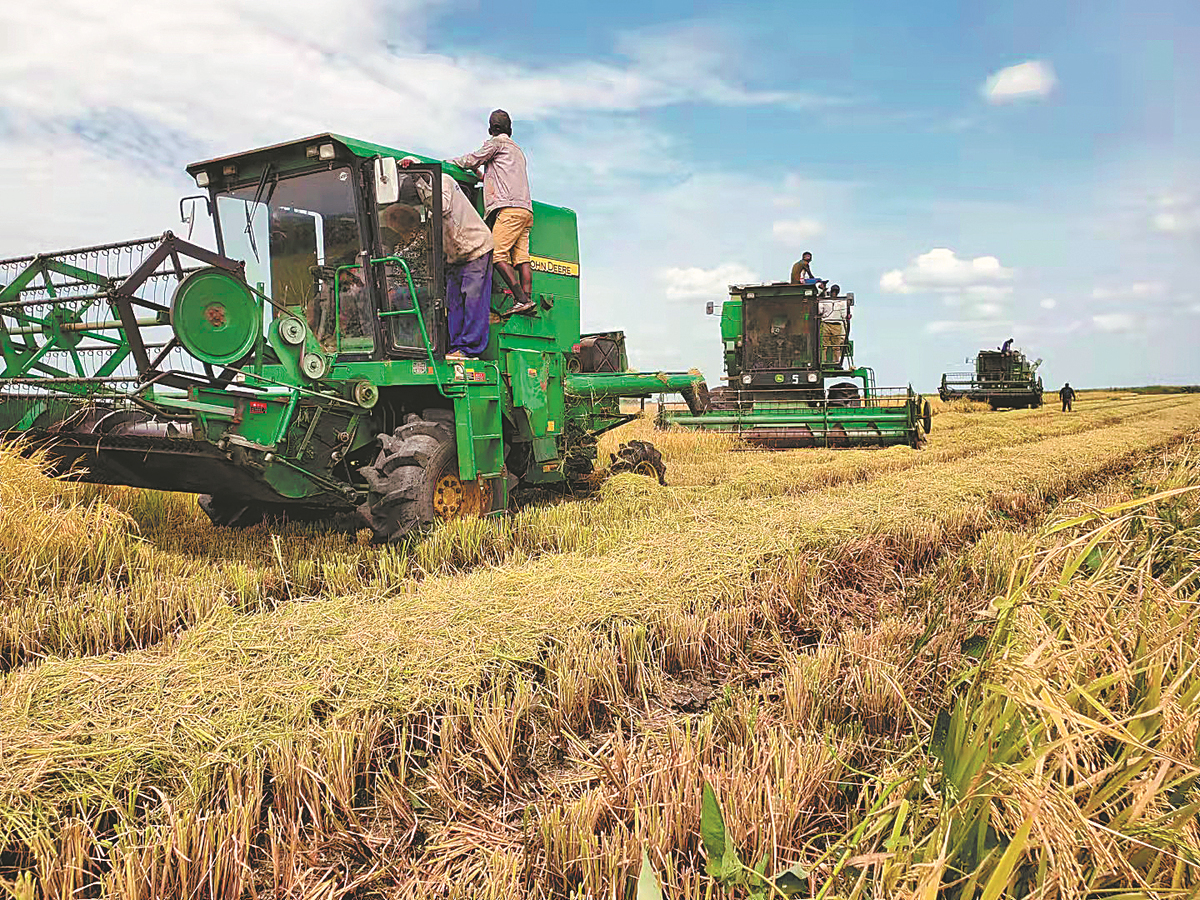Africa partnership yields rich bounty


With barren fields transformed, Chinese-backed rice farm opens opportunities for villagers in Mozambique
Editor's Note: People-to-people exchanges are deepening the connections between countries participating in the Belt and Road Initiative. This column celebrates the efforts of those working toward a shared future.
When Wei Shunlong first set eyes on the expanse of land earmarked for a trailblazing rice farm in Mozambique in June 2013, he had to draw heavily on his imagination. The sparse vegetation-dotting scrubby fields amid yellowed clumps of dried-out grass-did not at first look promising for the Chinese-backed project.
"The soil was actually very fertile but few crops were grown due to lack of infrastructure such as irrigation facilities," says Wei, a specialist in rice plantations.
Together with 27 other Chinese experts, Wei worked hard to restore the farmland, in the Xai-Xai district of the southern Mozambican province of Gaza. They removed the wild grass, filled trenches, and built irrigation canals and pumping stations. And, within two months, they succeeded in creating an initial 500 hectares of viable farmland in the southeastern African country.
With the farm's success, more and more villagers have sought to try their hand at growing rice. Due to the improved irrigation system and effective management, yields at the farm have been increasing steadily. They have reached as high as 9 metric tons a hectare in recent years-five times as high as the levels managed by local farmers, says Wei, a manager of the rice farm that's known as Wanbao Mozambique. It takes its name from a Chinese company that was engaged to work on the project.
The Wanbao rice farm, now covering 20,000 hectares, was created with investment from the China-Africa Development Fund in Beijing and is leased by the Mozambique government.
Boosted by the Belt and Road Initiative, the development fund has topped up its investment in the project. About 3,000 hectares of bushland have been converted into farmland over recent years-accounting for 15 percent of the total area of the farm, according to Dong Kun, the supervisor of the project.
Today, it stands as China's biggest crop investment project in Africa, contributing to food security in Mozambique with its high rice yields. It has also served to spread advanced farming techniques among local farmers. Most of the farmers engaged with the Wanbao Mozambique farm are local villagers. They grow rice under various arrangements, such as farmland plots allocated under contracts, and receive guidance from Chinese experts such as Wei.
"Despite the favorable climate and fertile soil, many farmers in Mozambique are not very skilled at farming and the rice yield is very low," he says. "In the Wanbao farm they can learn practical skills to grow rice, and many of my apprentices have left and started to operate their own farms after acquiring skills."
The success of the Wanbao project has even changed the habits of residents, as some have turned to rice as their staple food instead of corn-their traditional food, the native of Hubei province says.
China-Africa cooperation has been intensifying in various aspects over the past decades, especially over the past eight years with the implementation of the Belt and Road Initiative. Such endeavors have benefited both sides. More than 40 countries in the continent have joined the initiative, accounting for most of the states in Africa.
Direct investment from China to Africa reached $49 billion by the end of 2019, a nearly 100-fold increase compared with 2000, says Liu Yuxi, head of the Chinese Mission to the African Union. China has also been Africa's biggest trading partner since 2009, replacing the United States.
As of September, the China-Africa Development Fund, a major investment platform to provide financial support for BRI projects, had committed investment of more than $5.7 billion in 37 African countries. The funds have gone to infrastructure, manufacturing, agriculture and energy, among other sectors, according to the fund.
Although building infrastructure such as roads, bridges and railways is a key part of bilateral cooperation in Africa, more agricultural projects have also been carried out in recent years. They have been vital in contributing to improved food security in the continent.























